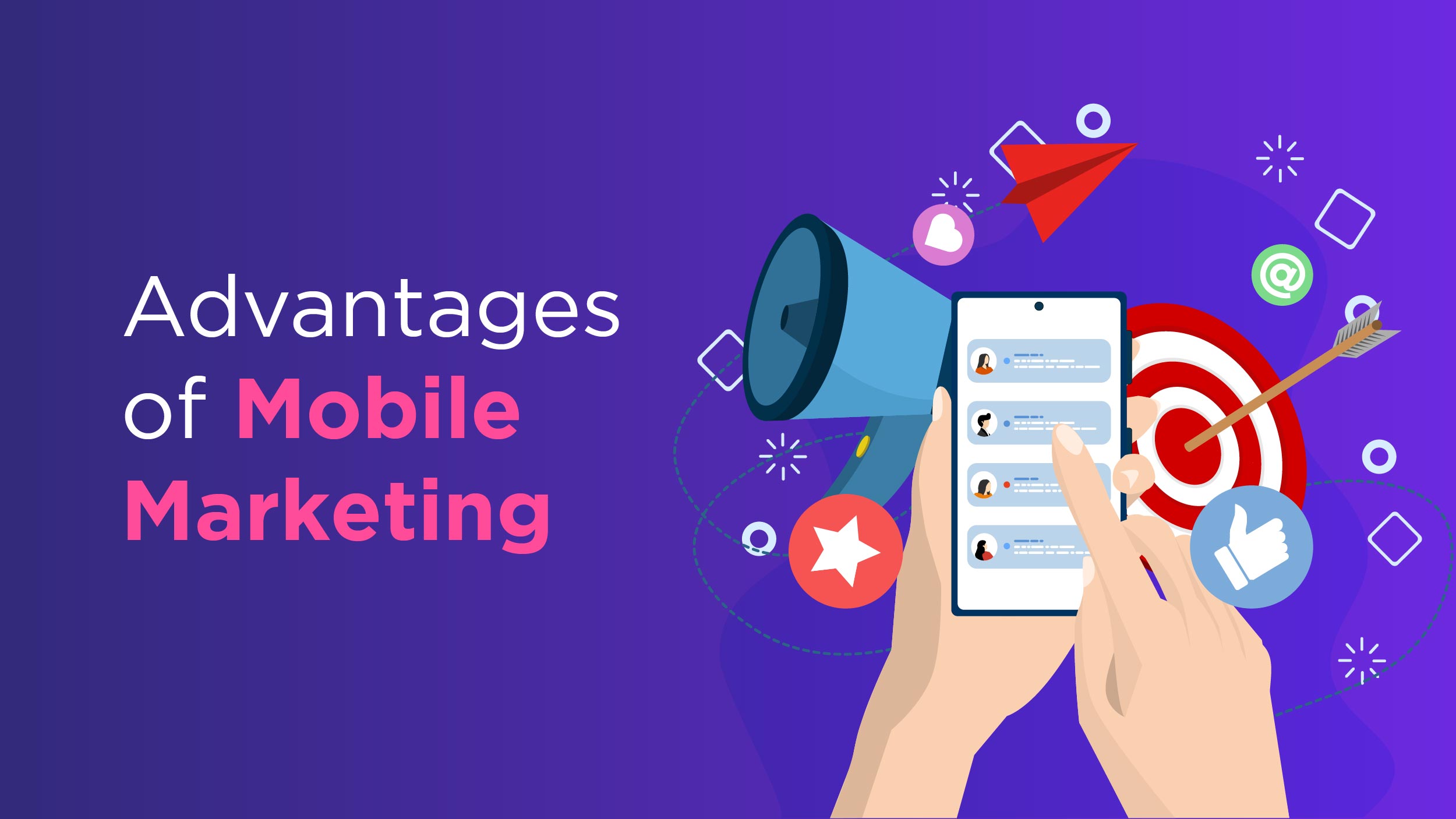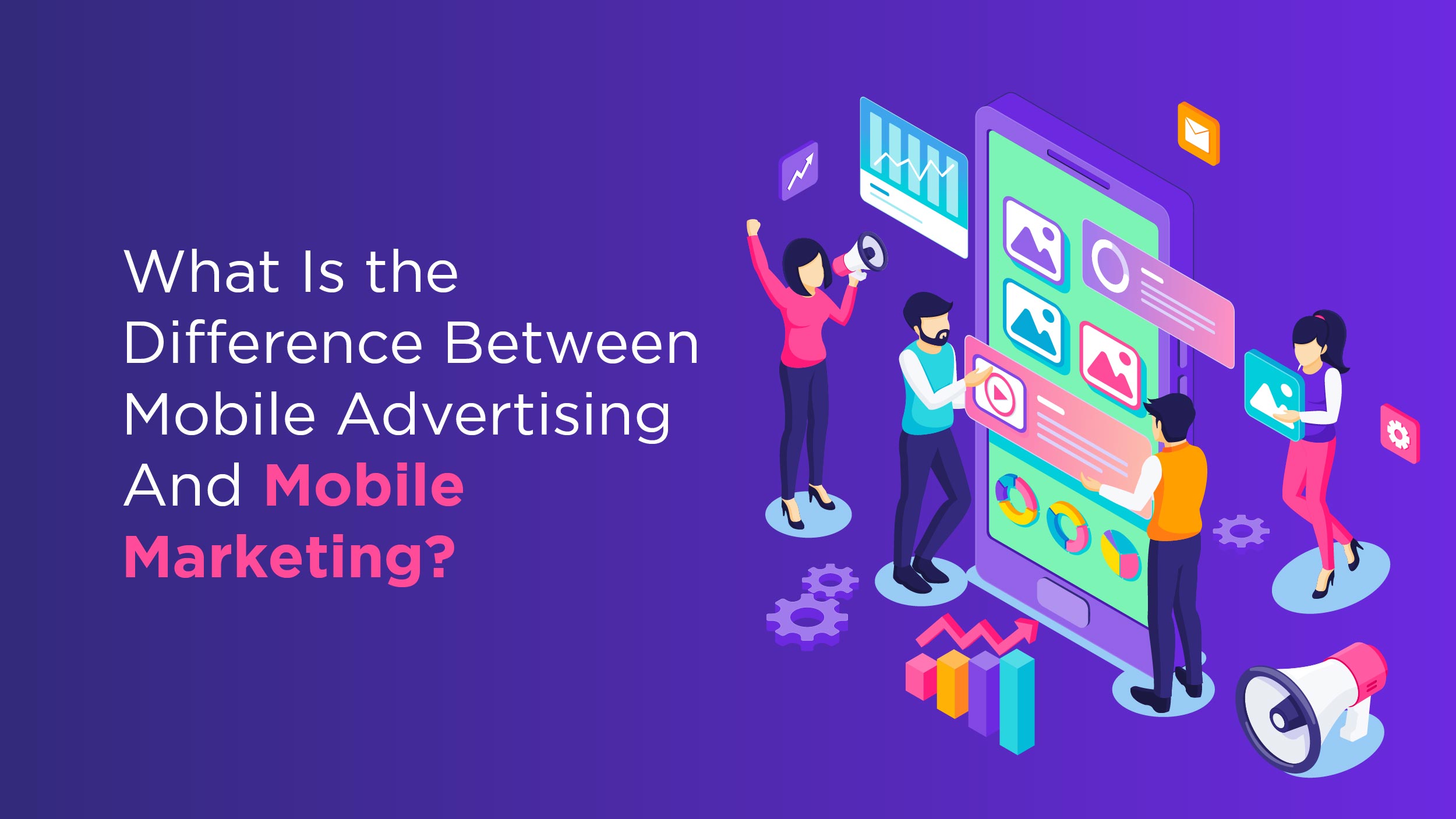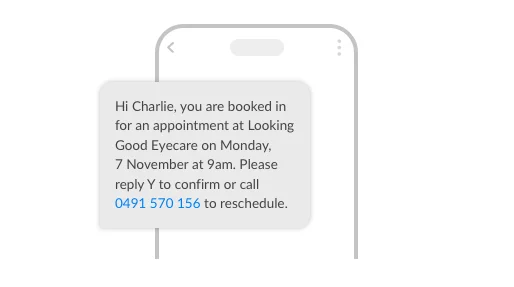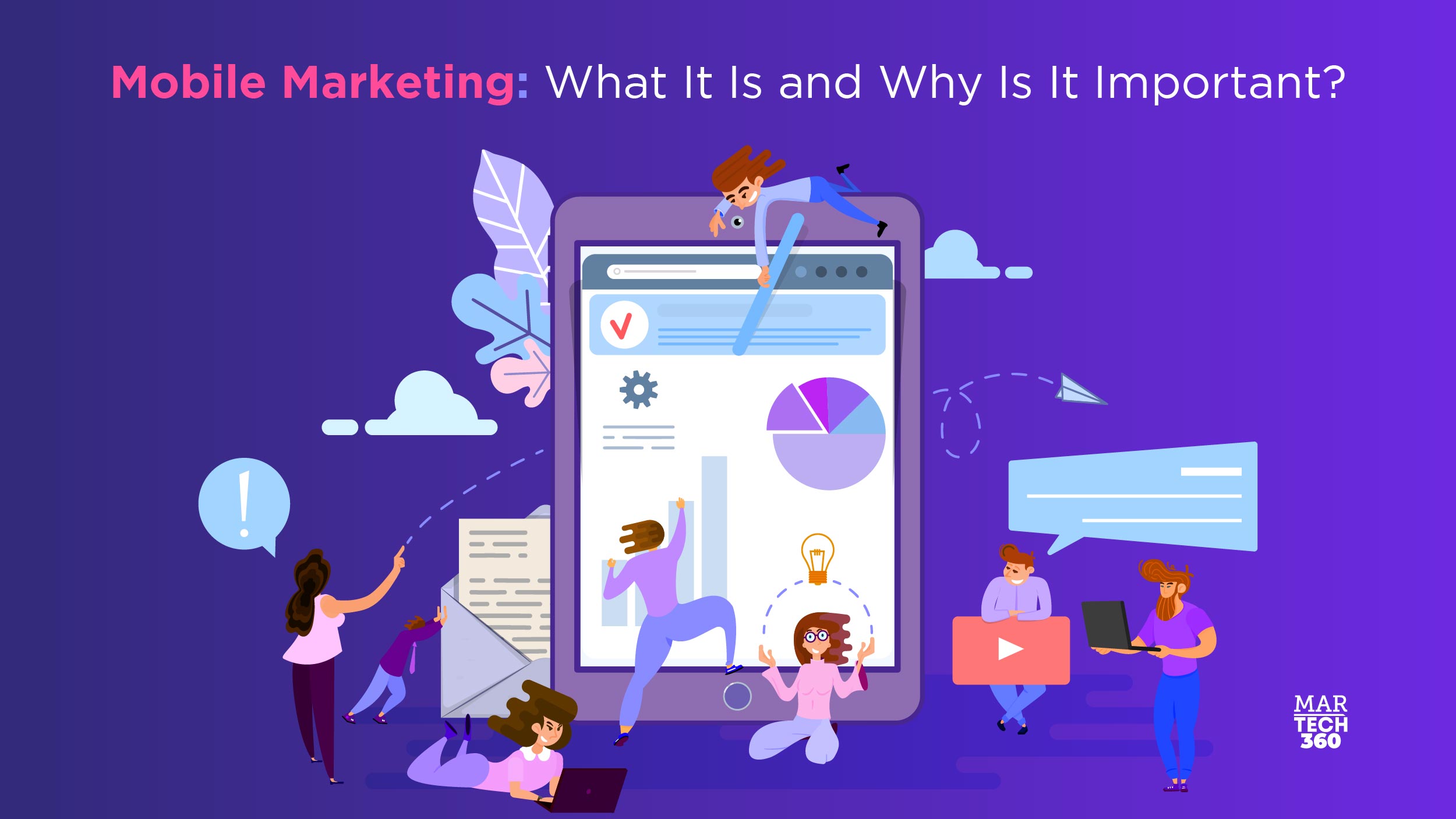According to a recent study, the average smartphone user checks their phone approximately 63 times daily, spending an average of 171 minutes per day on their devices. An astonishing 83% admit to using their smartphones even when in the company of friends and family.
These statistics underscore the pervasive influence of smartphones in our lives, emphasizing the critical need for marketers to develop strong mobile marketing strategies. Read on to know more.
What is Mobile Marketing?
Mobile marketing refers to the practice of promoting products, services, or ideas through mobile devices such as smartphones, tablets, and feature phones. It utilizes various channels, including SMS messaging, mobile apps, push notifications, in-app messaging, mobile websites, and email marketing, to reach and engage with customers on their mobile devices.
Advantages of Mobile Marketing

- Greater Reach: Mobile devices have a wide user base, allowing businesses to reach a larger audience and expand their market reach.
- Personalized Targeting: Marketing via mobile enables businesses to deliver personalized and targeted messages to specific customer segments based on their preferences, behaviors, and location. This increases the relevance and effectiveness of marketing campaigns.
- Immediate and Direct Communication: Mobile devices are typically within reach of users at all times, allowing for immediate and direct communication. Businesses can leverage this to deliver time-sensitive information, offers, and updates to customers.
- High Engagement Rates: It has high engagement rates, with customers being more likely to engage with and respond to mobile messages compared to other forms of communication. This can lead to increased customer interaction and conversion rates.
- Cost-Effective: It can be a cost-effective marketing strategy compared to traditional channels. It offers a higher return on investment (ROI) due to its targeted nature and high engagement rates.
- Data-Driven Insights: It generates valuable data and insights about customer behavior, preferences, and engagement. This data can be analyzed to gain insights, optimize marketing strategies, and improve decision-making.
- Convenience and Accessibility: Mobile devices are always at hand, making marketing via mobile incredibly effective and convenient. It allows businesses to connect with audiences anytime, anywhere.
- Integration with Other Channels: It can complement and integrate with other marketing channels, such as social media, email marketing, and offline advertising. It allows for a cohesive and integrated marketing approach.
Also Read: What’s Next in Mobile Marketing Trends? – Stay Ahead with these Insights
What Is the Difference Between Mobile Advertising And Mobile Marketing?
 Mobile advertising and mobile marketing are related concepts but have distinct differences. Mobile advertising specifically refers to the practice of promoting products, services, or brands through mobile devices by displaying ads on mobile platforms, targeting specific demographics or user segments, and aiming to generate brand awareness or drive specific actions.
Mobile advertising and mobile marketing are related concepts but have distinct differences. Mobile advertising specifically refers to the practice of promoting products, services, or brands through mobile devices by displaying ads on mobile platforms, targeting specific demographics or user segments, and aiming to generate brand awareness or drive specific actions.
On the other hand, mobile marketing is a broader term that encompasses various strategies and tactics, including advertising, SMS marketing, mobile apps, push notifications, in-app messaging, and mobile websites. It focuses on engaging and interacting with customers, delivering personalized messages, and providing value-added experiences through mobile channels.
4 Different Types of Mobile Marketing
SMS Marketing
 SMS marketing, or text message marketing, is a marketing strategy where businesses send text messages to customers and prospects. This includes promotional offers, discounts, appointment reminders, and shipping notifications via short message service (SMS).
SMS marketing, or text message marketing, is a marketing strategy where businesses send text messages to customers and prospects. This includes promotional offers, discounts, appointment reminders, and shipping notifications via short message service (SMS).
91% of customers prefer brands to send promotional messages via SMS.
Social Media Marketing
According to Statista, YouTube, WhatsApp, and Instagram are closely trailed by Facebook, which boasts over 2.8 billion monthly active users worldwide. Given this vast user base, social media should be a cornerstone of your marketing strategy.
Engaging with your audience through comments and messages on social media helps foster personal connections. Additionally, customer recommendations and referrals can boost brand recognition and drive conversions.
Location-Based Marketing (GPS)
Location-based marketing, also known as GPS marketing, utilizes the GPS technology in mobile devices to deliver targeted marketing messages and information to customers based on their geographic location.
89% of U.S. mobile marketers cited increased sales as the top benefit of location-based marketing.
In-app Marketing
In-app marketing refers to the practice of engaging users and promoting products or services directly within a mobile application. This strategy involves delivering personalized messages, advertisements, and offers to app users to enhance their experience, drive engagement, and boost conversions.
Why Does Mobile Marketing Matters?
Mobile marketing is crucial due to its wide audience reach, as the proliferation of smartphones and tablets allows businesses to connect with customers anytime, anywhere. It enables real-time, personalized communication based on customer preferences, behaviors, and locations, enhancing the customer experience and boosting campaign effectiveness. Mobile devices yield higher engagement and conversion rates compared to other channels, encouraging immediate actions and improving ROI.
Additionally, providing a mobile-friendly experience is vital as more users access the internet via mobile devices, ensuring seamless and user-friendly interactions that enhance satisfaction and loyalty. It also offers ample opportunities for innovation and experimentation, such as mobile apps, push notifications, in-app messaging, and location-based services. Furthermore, it generates valuable data and insights into customer behavior and preferences, allowing for optimized marketing strategies and informed business decisions.
How to Create a Mobile Marketing Strategy?
To kickstart a mobile marketing business, begin by ensuring your website is mobile-friendly, either through automated conversion systems or by creating a new version specifically for mobile viewing. Next, establish your presence on location-based platforms like Foursquare and Facebook to expand your reach and initiate mobile ad campaigns.
Use location-based platforms and apps firsthand to understand consumer behavior better. Then, launch your mobile ad campaign, optimizing it to ensure visibility when users search for relevant terms. Consider various payment options for ad campaigns, such as flat fees or cost-per-click, and leverage platforms like Facebook, Google, and Instagram for campaign management. Finally, incorporate QR codes into your marketing strategy to provide easy access to your website, promotions, or other essential information for potential customers.
Key Takeaways
Mobile marketing has emerged as a powerful tool for businesses to connect with their target audience in a highly personalized and immediate manner. With the widespread use of mobile devices, this type of marketing offers the advantage of reaching a wide audience, delivering tailored messages, and driving higher engagement and conversion rates.


Comments are closed.